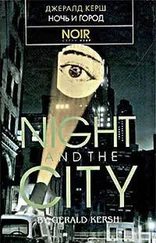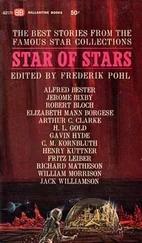Джералд Керш - Nightshade and Damnations
Здесь есть возможность читать онлайн «Джералд Керш - Nightshade and Damnations» весь текст электронной книги совершенно бесплатно (целиком полную версию без сокращений). В некоторых случаях можно слушать аудио, скачать через торрент в формате fb2 и присутствует краткое содержание. Город: Richmond, Год выпуска: 2013, Издательство: Valancourt Books, Жанр: Фантастика и фэнтези, на английском языке. Описание произведения, (предисловие) а так же отзывы посетителей доступны на портале библиотеки ЛибКат.
- Название:Nightshade and Damnations
- Автор:
- Издательство:Valancourt Books
- Жанр:
- Год:2013
- Город:Richmond
- ISBN:нет данных
- Рейтинг книги:3 / 5. Голосов: 1
-
Избранное:Добавить в избранное
- Отзывы:
-
Ваша оценка:
- 60
- 1
- 2
- 3
- 4
- 5
Nightshade and Damnations: краткое содержание, описание и аннотация
Предлагаем к чтению аннотацию, описание, краткое содержание или предисловие (зависит от того, что написал сам автор книги «Nightshade and Damnations»). Если вы не нашли необходимую информацию о книге — напишите в комментариях, мы постараемся отыскать её.
Nightshade and Damnations — читать онлайн бесплатно полную книгу (весь текст) целиком
Ниже представлен текст книги, разбитый по страницам. Система сохранения места последней прочитанной страницы, позволяет с удобством читать онлайн бесплатно книгу «Nightshade and Damnations», без необходимости каждый раз заново искать на чём Вы остановились. Поставьте закладку, и сможете в любой момент перейти на страницу, на которой закончили чтение.
Интервал:
Закладка:
The Brighton Monster
I found one of the most remarkable stories of the century—a story related to the most terrible event in the history of mankind—in a heap of rubbish in the corridor outside the office of Mr. Harry Ainsworth, editor of the People , in 1943.
Every house in London, in those dark, exciting days, was being combed for salvage, particularly scrap metal and waste paper. Out of Mr. Ainsworth’s office alone came more than three hundred pounds of paper that, on consideration, was condemned to pulp as not worth keeping.
The pamphlet I found must have been lying at the bottom of a bottom drawer—it was on top of the salvage basket. If the lady, or gentleman, who sent it to the People will communicate with me I will gladly pay her (or him) two hundred and fifty English pounds.
As literature it is nothing but a piece of pretentious nonsense written by one of those idle dabblers in “natural philosophy” who rushed into print on the slightest provocation in the eighteenth century. But the significance of it is formidable.
It makes me afraid.
The author of my pamphlet had attempted to tickle his way into public notice with the feather of his pen by writing an account of a monster captured by a boatman fishing several miles out of Brighthelmstone in the county of Sussex in the summer of the year 1745.
The name of the author was the Reverend Arthur Titty. I see him as one of those pushing, self-assertive vicars of the period, a rider to hounds, a purple-faced consumer of prodigious quantities of old port; a man of independent fortune, trying to persuade the world and himself that he was a deep thinker and a penetrating observer of the mysterious works of God.
I should never have taken the trouble to pocket his Account of a Strange Monster Captured Near Brighthelmstone in the County of Sussex on August 6 th in the Year of Our Lord 1745 if it had not been coincidence of the date: I was born on August 6. So I pushed the yellowed, damp-freckled pages into the breast pocket of my battledress, and thought no more about them until April 1947, when a casual remark sent me running, yelling like a maniac, to the cupboard in which my old uniforms were hanging.
The pamphlet was still in its pocket.
I shall not waste your time or strain your patience with the Reverend Arthur Titty’s turgid, high-falutin’ prose or his references to De rerum —this, that and the other. I propose to give you the unadorned facts in the very queer case of the Brighthelmstone monster.
Brighthelmstone is now known as Brighton—a large, popular, prosperous holiday resort delightfully situated on the coast of Sussex by the Downs. But in the Reverend Titty’s day it was an obscure fishing village.
If a fisherman named Hodge had not had an unlucky night on August 5, 1745, on the glass-smooth sea off Brighthelmstone, this story would never have been told. He had gone out with his brother-in-law, George Rodgers, and they had caught nothing but a few small and valueless fishes. Hodge was desperate. He was notorious in the village as a spendthrift and a drunkard, and it was suspected that he had a certain connection with a barmaid at the Smack Inn—it was alleged that she had a child by him in the spring of the following year. He had scored up fifteen shillings for beer and needed a new net. It is probable, therefore, that Hodge stayed out in his boat until after the dawn of August 6 because he feared to face his wife—who also, incidentally, was with child.
At last, glum, sullen, and thoroughly out of sorts, he prepared to go home.
And then, he said, there was something like a splash—only it was not a splash: it was rather like the bursting of a colossal bubble: and there, in the sea, less than ten yards from his boat, was the monster, floating.
George Rodgers said: “By gogs, Jack Hodge, yon’s a man!”
“Man? How can ’a be a man? Where could a man come from?”
The creature that had appeared with the sound of a bursting bubble drifted closer, and Hodge, reaching out with a boat hook, caught it under the chin and pulled it to the side of the boat.
“That be a merman,” he said, “and no Christian man. Look at ’un, all covered wi’ snakes and fire-drakes, and yellow like a slug’s belly. By the Lord, George Rodgers, this might be the best night’s fishing I ever did if it’s alive, please the Lord! For if it is I can sell that for better money than ever I got for my best catch this last twenty years, or any other fisherman either. Lend a hand, Georgie-boy, and let’s have a feel of it.”
George Rodgers said: “That’s alive, by hell—look now, and see the way the blood runs down where the gaff went home.”
“Haul it in, then, and don’t stand there gaping like a puddock.”
They dragged the monster into the boat. It was shaped like a man and covered from throat to ankle with brilliantly colored images of strange monsters. A green, red, yellow and blue thing like a lizard sprawled between breast bone and navel. Great serpents were coiled above its legs. A smaller snake, red and blue, was picked out on the monster’s right arm: the snake’s tail covered the forefinger and its head was hidden in the armpit. On the left-hand side of its chest there was a big heart-shaped design in flaming scarlet. A great bird like an eagle in red and green spread its wings from shoulder-blade to shoulder-blade, and a red fox chased six blue rabbits from the middle of his spine into some unknown hiding place between his legs. There were lobsters, fishes, and insects on his left arm and on his right buttock a devilfish sprawled, encircling the lower part of his body with its tentacles. The back of his right hand was decorated with a butterfly in yellow, red, indigo and green. Low down, in the center of the throat, where the bone begins, there was a strange, incomprehensible, evil-looking symbol.
The monster was naked. In spite of its fantastic appearance it was so unmistakably a male human being that George Rodgers—a weak-minded but respectable man—covered it with a sack. Hodge prised open the monster’s mouth to look at its teeth, having warned his brother-in-law to stand by with an axe in case of emergency. The man-shaped creature out of the sea had red gums, a red tongue, and teeth as white as sugar.
They forced it to swallow a little gin—Hodge always had a flask of gin in the boat—and it came to life with a great shudder, and cried out in a strange voice, opening wild black eyes and looking crazily left and right.
“Tie that up. You tie that’s hands while I tie that’s feet,” said Hodge.
The monster offered no resistance.
“Throw ’un back,” said George Rodgers, suddenly overtaken by a nameless dread. “Throw ’un back, Jack, I say!”
But Hodge said: “You be mazed, George Rodgers, you born fool. I can sell ’e for twenty-five golden guineas. Throw ’un back? I’ll throw ’ ee back for a brass farthing, tha’ witless fool!”
There was no wind. The two fishermen pulled for the shore. The monster lay in the bilge, rolling its eyes. The silly, good-natured Rodgers offered it a crust of bread which it snapped up so avidly that it bit his finger to the bone. Then Hodge tried to cram a wriggling live fish into its mouth, but “the monster spat it out pop , like a cork out of a bottle, saving your Honor’s presence.”
Brighthelmstone boiled over with excitement when they landed. Even the Reverend Arthur Titty left his book and his breakfast, clapped on his three-cornered hat, picked up his cane, and went down to the fish-market to see what was happening. They told him that Hodge had caught a monster, a fish that looked like a man, a merman, a hypogriff, a sphinx—heaven knows what. The crowd parted and Titty came face to face with the monster.
Читать дальшеИнтервал:
Закладка:
Похожие книги на «Nightshade and Damnations»
Представляем Вашему вниманию похожие книги на «Nightshade and Damnations» списком для выбора. Мы отобрали схожую по названию и смыслу литературу в надежде предоставить читателям больше вариантов отыскать новые, интересные, ещё непрочитанные произведения.
Обсуждение, отзывы о книге «Nightshade and Damnations» и просто собственные мнения читателей. Оставьте ваши комментарии, напишите, что Вы думаете о произведении, его смысле или главных героях. Укажите что конкретно понравилось, а что нет, и почему Вы так считаете.






